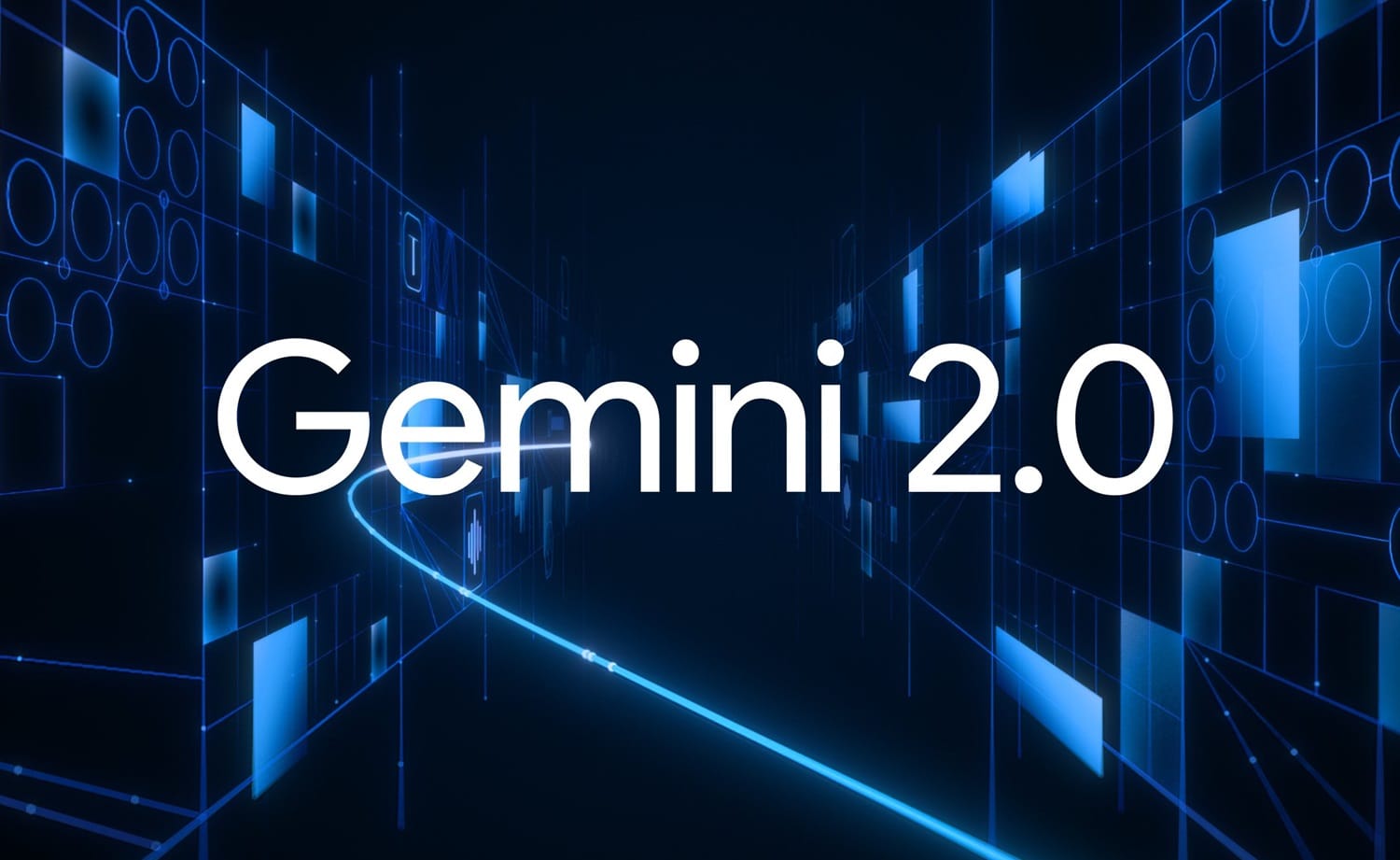Google Introduces Gemini 2.0: A Leap Toward the Agentic Era of AI
Google's latest AI model, Gemini 2.0, pushes boundaries with advanced reasoning, multimodal outputs, and native tool integration.

Google has just announced the launch of Gemini 2.0, the next-generation AI model built to redefine human-AI interaction in the new “agentic era.” This release builds on the successes of Gemini 1.0 and 1.5, which set the foundation for multimodal capabilities and long-context understanding across text, images, audio, video, and code.
What is Gemini 2.0?
Gemini 2.0 represents a significant leap forward in AI, focusing on advanced reasoning, multimodal output, and native tool integration. It introduces features like:
- Multimodal Outputs: Native support for generating images and multilingual text-to-speech audio.
- Advanced Reasoning: Handling complex queries, multi-step instructions, and tasks such as advanced math and coding.
- Native Tool Use: Integrated capabilities for tools like Google Search and third-party APIs.
Gemini 2.0 Flash
Gemini 2.0 Flash is the experimental flagship model with enhanced performance, boasting twice the speed of Gemini 1.5 Pro while supporting:
- Real-Time Multimodal Interactions: Input and output across audio, video, and text.
- Dynamic Functionality: New API capabilities for live video streaming and interactive tool use.
- Developer Access: Available today via the Gemini API in Google AI Studio and Vertex AI. Text-to-speech and image generation are currently limited to early-access partners, with broader availability expected in January.
Deep Research in Gemini Advanced
Another new feature Google is launching is Deep Research, which leverages Gemini 2.0’s reasoning abilities to compile in-depth reports on complex topics, now available in Gemini Advanced.
Expanding Gemini Across Google Ecosystem
Google is integrating Gemini 2.0 into its flagship products, starting with:
- Search: Enhancing AI Overviews with advanced reasoning for complex queries and multimodal searches. Limited testing is underway, with broader rollout planned for early 2025.
- Gemini Assistant: A chat-optimized version of 2.0 Flash is now accessible for global users, bringing more capabilities to Gemini’s existing assistant app.
Pioneering Research Prototypes
Google is also showcasing experimental prototypes built on Gemini 2.0:
- Project Astra: An evolving universal assistant, now with better multilingual dialogue, improved memory, and integrated tools like Maps and Lens.
- Project Mariner: A Chrome extension that navigates and completes tasks in-browser, achieving state-of-the-art results on web automation benchmarks.
- Jules: An AI-powered coding assistant embedded in GitHub workflows, aimed at streamlining software development.
Responsible Development
As AI enters this new frontier, Google emphasizes safety and responsibility, outlining measures such as:
- In-depth risk assessments and safety training.
- Privacy-first features like easy session deletion.
- Robust defenses against external manipulation, including protections against phishing and prompt injection.
Looking Ahead
Gemini 2.0 solidifies Google's position among the forerunners of AI innovation. With agentic AI becoming more actionable and intuitive, Gemini 2.0 aims to bridge the gap between static information processing and dynamic, real-world interaction.
The next year will see the gradual integration of Gemini 2.0 across Google products, further developments in agentic research, and a wider rollout of developer tools to bring these capabilities to more applications.
Try Gemini 2 Flash Experimental now on gemini.google.com
